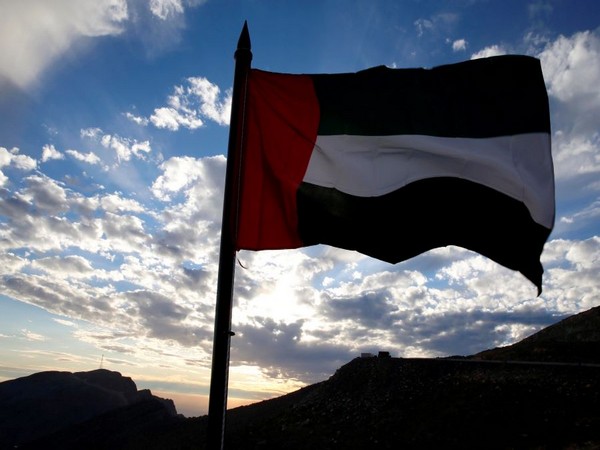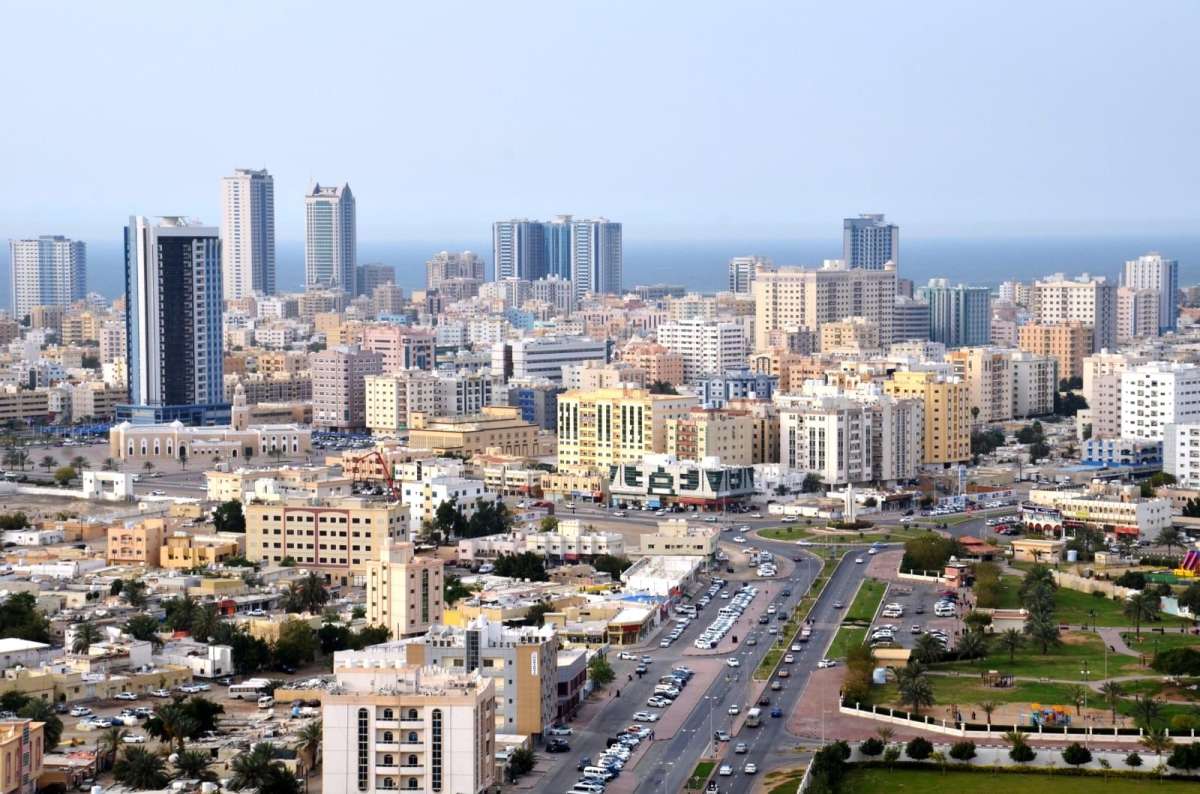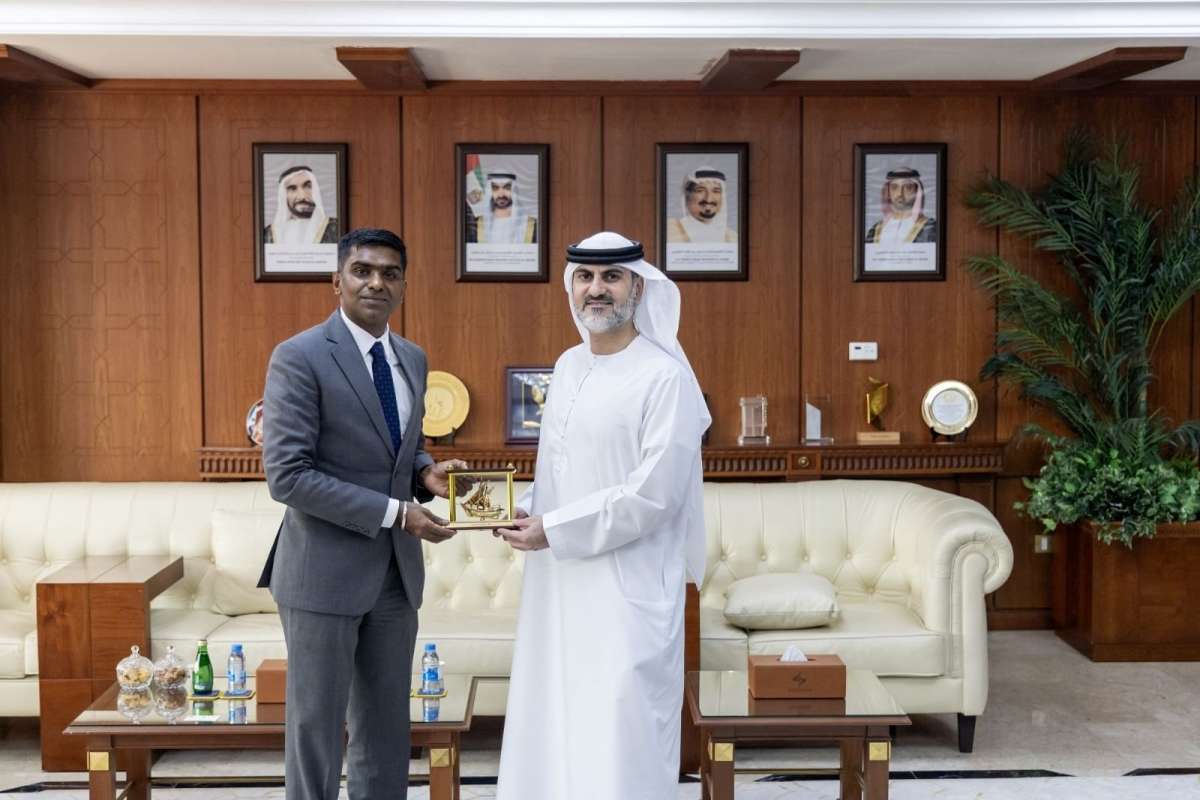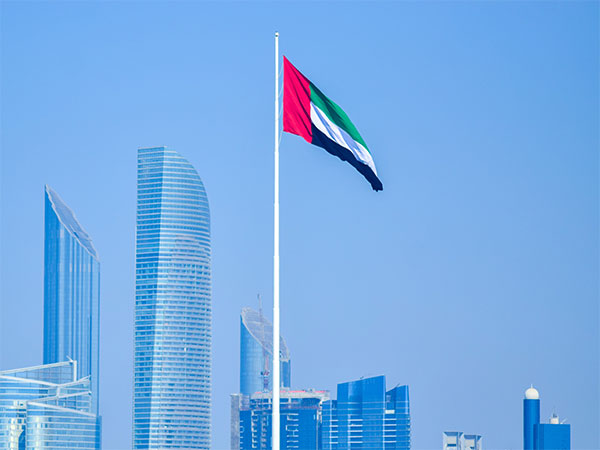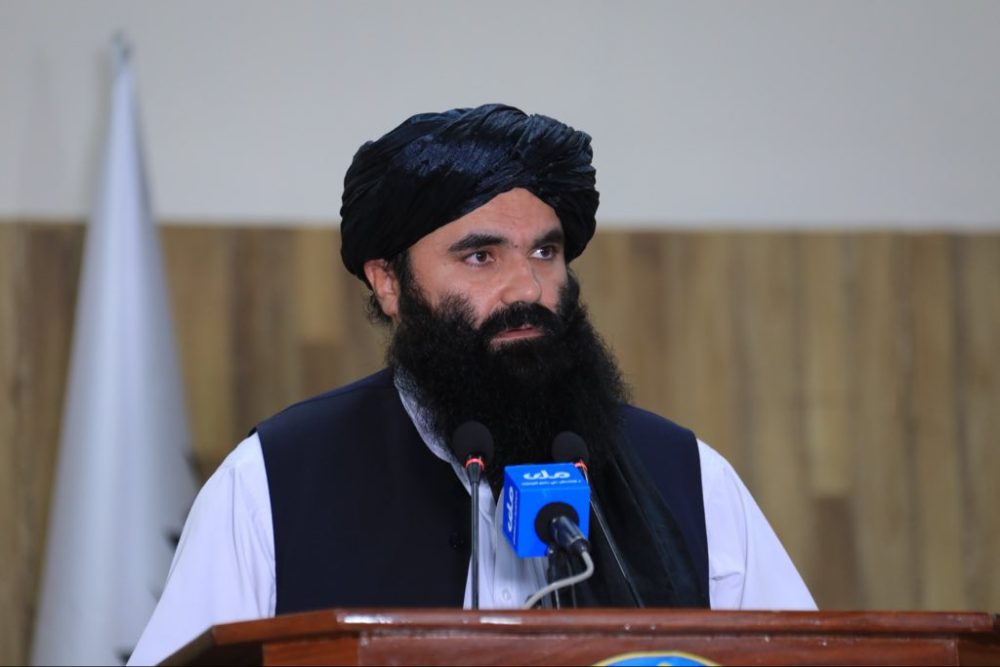The project involves the development of Al Aflaj and the launch of academic, practical and professional training programmes…reports Asian Lite News
Sheikh Humaid bin Rashid Al Nuaimi, Supreme Council Member and Ruler of Ajman launched the Masfout Development Project in Ajman.
The launch event, attended by Sheikh Ammar bin Humaid Al Nuaimi, Crown Prince of Ajman, and Sheikh Theyab bin Mohamed bin Zayed Al Nahyan, Chairman of the Emirates Council for Balanced Development, took place at Al Safiya Resort in Mushairef, Ajman. During the event, Sheikh Humaid was briefed by Sheikh Theyab about the project’s strategic pillars, which aim to unleash the area’s various social, tourism and cultural potential.
The event was also attended by Sheikh Abdulaziz bin Humaid Al Nuaimi, Chairman of the Ajman Department of Tourism Development, Sheikh Rashid bin Humaid Al Nuaimi, Chairman of Ajman Municipality and Planning Department, and Mohamed Khalifa Al Kaabi, Secretary-General of the Emirates Council for Balanced Development, along with several Sheikhs and senior officials.
The participants reviewed the strategic themes of the project, approved by the Emirates Council for Balanced Development. It aims to implement a wide range of innovative development strategies in Masfout, where cultural tourism forms the central axis of the region’s development.
Sheikh Humaid affirmed that the social stability of citizens and their families in various regions of the country, improving their living standards, and ensuring their well-being and happiness, are priorities of the UAE’s leadership, headed by President His Highness Sheikh Mohamed bin Zayed Al Nahyan.
Sheikh Humaid lauded the efforts of the Emirates Council for Balanced Development, led by Sheikh Theyab, through the “Emirates Villages” project, which is a model of balanced and sustainable economic and social development based on partnerships between the government, private and community sectors.
Sheikh Ammar expressed his happiness at Masfout being chosen as the site of the second project under Emirates Villages. He stressed that they are looking forward to presenting a distinguished developmental model in this area, with modern specifications that will improve the well-being of the region’s citizens and attract tourism and investment.
Sheikh Ammar added that the Emirates Council for Balanced Development supports the UAE’s comprehensive development, and helps achieve ambitious future goals by investing in human resources and natural potential in every region, benefitting all UAE residents.
Sheikh Theyab affirmed that Masfout has considerable tourism and heritage potential and distinguished national cadres. The goal is to enable its youth to take advantage of economic opportunities, he added and noted that the project, which will commence in Q4 2023, includes the development of tourism, heritage and service facilities to attract 100,000 tourists and support youth projects in the region.
The project is based on several pillars, including developing tourism projects, meeting the community’s services needs with key partners, supporting the private sector through the development of 50 projects, drafting strategic and training programmes that support community members, and promoting the region and its history.
The Masfout Project is the second project of Emirates Villages, launched by the Emirates Council for Balanced Development to establish a sustainable development model and create new economic and investment opportunities to ensure social stability and decent living for the community.
The project involves the development of Al Aflaj and the launch of academic, practical and professional training programmes.
Masfout is known for its fertile and high-quality agricultural lands, and farms spread across a large area. Its moderate summer climate, low humidity and relative winter coldness contribute to its agricultural productivity. Its valleys are among the most fertile in the UAE.
The city of Masfout also has nine main falajs (traditional irrigation canals), with some reaching a length of three kilometres, and secondary seasonal falajs that depend on water flowing from the valleys.
The region also has sustainable and seasonal dams on the outskirts of its valleys, such as Al Khaliban Dam, Al Muzeira Dam and Al Yazir Dam, which collect water flowing from the mountains and plains used for irrigating lands and supplying wells and falajs used for agricultural irrigation. (ANI/WAM)
ALSO READ-UAE urges need to address root causes of intolerance


